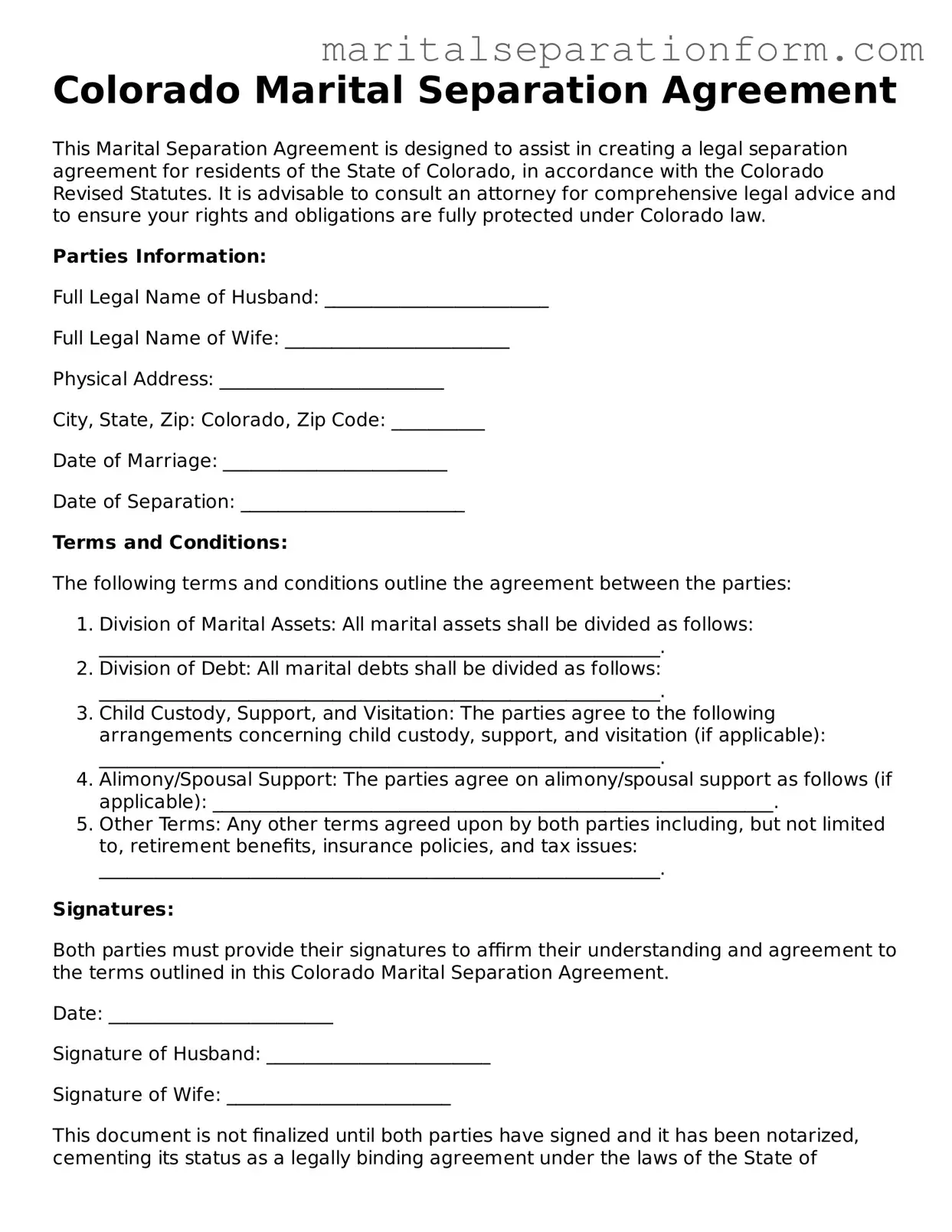Free Marital Separation Agreement Form for Colorado
The Colorado Marital Separation Agreement form serves as a legally binding document between spouses who are considering separation but not yet ready to divorce. It outlines the terms regarding assets, debts, child custody, support, and any other relevant details to their separation. Those interested in ensuring a smooth transition during this challenging time are encouraged to review and fill out the form by clicking the button below.
Customize Form Now

Free Marital Separation Agreement Form for Colorado
Customize Form Now

Customize Form Now
or
↓ Marital Separation Agreement File
Your unfinished form is right here
Edit and complete Marital Separation Agreement online in just a few steps.